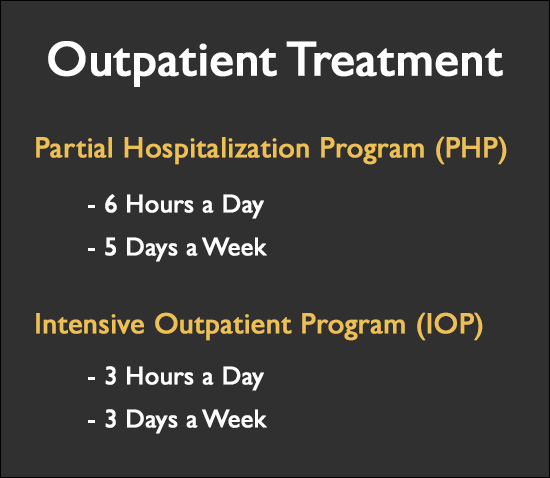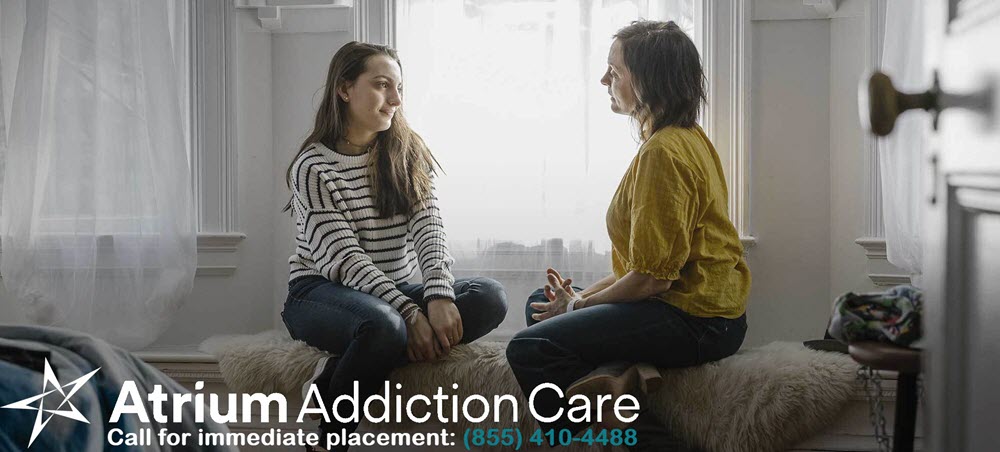What Is Outpatient Drug Treatment & How Does It Work?
Immediate Placement Available at our Top-Rated Treatment Centers.
Please call us at (855) 410-4488. We work with most major insurance providers and offer flexible payment options!
Atrium Care offers a variety of treatment choices and programs for individuals struggling with drug or alcohol addiction. Our inpatient treatment programs are designed for those who have more severe substance use problems and require 24-hour care. We admit both voluntary and involuntary patients.
If you or a loved one is strugling with substance abuse, please call us. We can help. (855) 410-4488.
Dependency impacts a broad range of different kinds of individuals at various levels. In fact, around one out of every 10 grownups in the United States abused illicit drugs in the month leading up to the 2014 National Study on Drug Use and Health (NSDUH).1 Since of this, addiction is considered to be an individual illness that needs specialized and specific treatment.
The National Institute on Substance Abuse (NIDA) reports that there are over 14,500 specialized facilities to deal with drug abuse and addiction within the United States, with outpatient treatment being among the common alternatives. Outpatient programs are designed to allow people fighting with drug abuse to get structured care while staying up to date with their social and expert responsibilities. With active involvement, outpatient treatment has actually been shown to increase the opportunities for lasting recovery.
What Is Outpatient Treatment?
One of the differences in between inpatient and outpatient programs is that outpatient treatment can supply more versatility than inpatient programs, allowing people the chance to keep up with work, family, school, or other commitments as required. When an individual is not as significantly depending on substances, and therefore may not need the exact same increased level of care, outpatient rehab programs for alcohol addiction or drug dependency may be a good option.
For example, an outpatient treatment program benefits those who do not require medical detox or 24-hour care and guidance during treatment and who also have an encouraging and healthy house environment.
There are several levels of care within outpatient drug treatment programs, which can manage individuals varying levels of structure and schedule. Outpatient programs can also be used as a step-down level of care from a residential treatment program to transition individuals back into daily life gradually.
Outpatient programs for drug abuse may be offered in a variety of settings, from hospitals to community centers to the workplaces of treatment companies to specialized drug rehabilitation facilities. Research studies, like one released in the journal Substance Abuse, Treatment, Prevention, and Policy, show that outpatient dependency treatment can be just as efficient as domestic treatment programs. In general, active participation in an outpatient drug rehab program improves success rates for addiction healing.
Provider Offered in Outpatient Drug Treatment Programs
Just like inpatient drug rehab, the services provided by outpatient drug rehab centers differ from program to program. Usually speaking, a lot of the same kinds of services are supplied at both inpatient and outpatient drug treatment programs. They just might differ in their intensity, period, or frequency.
For instance, both kinds of drug rehabilitation can supply detox services to permit users to process drugs securely out of the body. Medical detox is a more comprehensive form provided mainly on an inpatient basis. Outpatient drug rehabilitation might still include medicinal tools and medication management as part of a detailed treatment plan. Group and specific treatment sessions are generally part of all addiction treatment programs.
Outpatient treatment programs may encourage participation in a 12-Step or peer support system. Support group conferences can help with healthy peer interaction and motivation with a self-help kind of model.
Relapse prevention and curricula are likewise typically part of outpatient drug rehabilitation. Relapse rates for drug addiction are high, between 40 percent and 60 percent, NIDA publishes. So, workshops and regression avoidance services that teach coping mechanisms for tension and prospective triggers are integral parts of a drug rehab program. Life skills training, anger management workshops, and parenting classes might likewise be used through outpatient drug rehabilitation.
Child care and transportation services as well as treatment for co-occurring mental health conditions may be offered. Holistic and adjunctive treatment approaches may likewise be offered through outpatient drug rehab. For more information on what a specific rehabilitation center has to offer, people ought to check with the particular outpatient treatment.
Types of Outpatient Treatment
Outpatient rehab programs for dependency treatment might be preferable for those who do not need 24/7 treatment and attention, and who require the versatility of being able to work around their existing schedules and commitments. Outpatient programs are frequently more likely to be covered by insurance, a minimum of partly, and cost less than residential treatment programs.
There are various levels of outpatient treatment, varying from extensive to less so. Conventional outpatient services can vary significantly and will depend on each specific treatment center and the requirements of the individual seeking treatment. More intensive and structured programs consist of intensive outpatient programs (IOPs) and partial hospitalization programs (PHP). These programs might be very comparable to inpatient drug rehabilitation programs, with the primary difference being that the individual returns home each night.

Partial Hospitalization Programs
A PHP is only a little step down from inpatient drug rehab, and it will typically offer extremely structured programming for 4-6 hours a day, 3-5 days a week. These programs are ideal for individuals who may still require medical monitoring throughout the day, but have the ability to return home each night. Households and caregivers should be on board with the treatment strategy and be able to provide a stable and helpful house environment.
Intensive Outpatient Program
IOPs normally use sessions three days a week for roughly three hours at a time. An IOP may start with more sessions more frequently and after that lessen as an individual advances through rehabilitation. These programs are created for people who still require the structure and strength of an inpatient treatment program in addition to the flexibility of outpatient rehab. Support group need to be strong and the home environment should be stable for an IOP to be most effective. The journal Psychiatric Services reports that an IOP can be just as effective as an inpatient drug treatment program in many cases.
Outpatient drug rehabilitation might be an initial kind of treatment or be offered through a full continuum of care after completing an inpatient care program. People may also progress in between levels of outpatient care. Drug screenings and comprehensive evaluations need to be done prior to admission into any drug rehabilitation program in order to get a better idea of what the best fit might be. With a range of alternatives offered, outpatient drug rehab can significantly facilitate healing for active individuals.
Call us today to speak with an addiction expert: (855) 410-4488.

